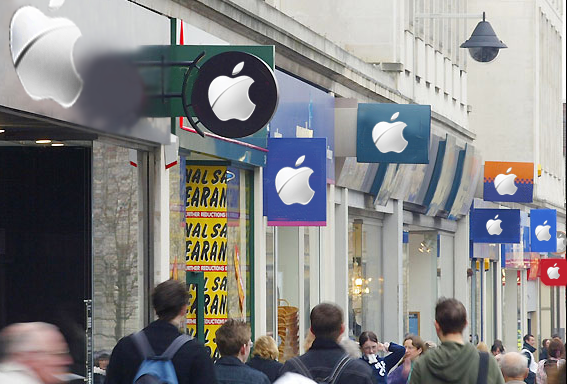Apple iTunes – the only place to shop… literally?
by Sukey Miller

 When Apple launched iTunes on April 28th 2003, who would have predicted that it would become the only place to shop online… Literally… Well, in Apple’s mind and plans at least.
When Apple launched iTunes on April 28th 2003, who would have predicted that it would become the only place to shop online… Literally… Well, in Apple’s mind and plans at least.
Last year we saw Apple enforce iTunes for the delivery and payment of apps – some people complained but everyone fell in line and complied. Earlier this year Apple went on to announce that all content available within those apps would also need to be purchased via iTunes under the same commercial terms. A number of prominent media companies complained that subscriptions performed via the internet from a non-Apple device, but later accessed via an iPhone or iPad, should not be subject to the 30% Apple tax – this resulted in Apple adjusting their rules to make it clear that only sales made on the Apple device would be subject to the 30% fee.
The next step in Apples on-going mission to claim a 30% tax for everything has now taken place as leading online book and magazine companies have been forced to remove their stores completely. The Amazon Kindle store has been removed from the Kindle Reader app on all Apple devices, so while you can continue to read your Kindle books on your iPhone or iPad you cannot purchase new ones directly from Amazon on the device. Same applies to Google, Kobo and Nook.
This now means that iPhone and iPad users that read lots of books or magazines only have one place they can buy their books from – iTunes. This further closes out leading brands that once embraced and supported the fledgling Apple devices.
It is interesting how Apple has rolled this out without as much as a few lines in the back pages of a newspaper or a second tier online publication. If the same thing was to happen on the high street there would be a national outcry – if Safeway or Kroger forcibly removed all the checkouts from Walmart, SuperTarget and Whole Foods Market and insisted you could only buy food from them we would never hear the last of it. In fact most democratic countries have outlawed this behaviour as anti-competitive or monopolistic, with governing bodies ensuring fairness and a level playing field.
How far will and can Apple take this before big companies join forces and revolt, or governments step in to look at their anti-competitive practices? The probable conclusion is that an increasing proportion of leading brands will move their commerce strategy away from apps and focus increasingly on web based stores, especially using HTML5 technology. Web based stores can be accessed equally from any device using open standards, making it impossible for Apple to block this form of purchase, and remember that items purchased outside of the Apple AppStore or iTunes can still be used from your Apple apps according to their terms. This approach also works on non-Apple devices therefore avoiding the complexity of supporting multiple mobile platforms.
There is already evidence for this fast growing trend towards HTML5 web stores – Kobo, one of the book store companies affected by Apples latest policy is already working on a new HTML5 web app.
Selling using credit card and carrier billing from web pages is an area that Bango knows well, having pioneered mobile web payments almost 10 years ago. See Bango Payment for more details of how to set up shop on the internet. Bango believes in an open market that encourages innovation, so if you have been affected by this or a previous Apple policy change, then let us know.
![]()
Subscribe to our newsletter
Get the latest subscription bundling news and insights delivered straight to your inbox.



